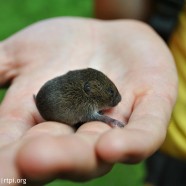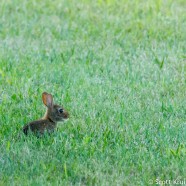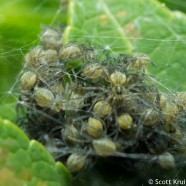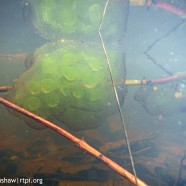Meadow Vole (Microtus pennsylvanicus)
We had a squee moment a couple weeks ago when our Project Wild America students came across a pair of baby meadow voles (Microtus pennsylvanicus) in our path along the Chadakoin River. According to an old wives tale, handling baby wildlife will deter the mother from returning, due to the human scent, ultimately leaving the little ones for dead. Thankfully, these tales are far from true. While it is best practice to leave little ones where you find them, picking them up isn’t a death sentence. Our students were alerted to the voles as they were squeaking from within the grass clump they...
Read MoreBrown-throated Three-toed-sloth (Bradypus variegatus)
RTPI Affiliate Sean Graesser is starting to feel the itch to get back to work in the tropics, thinking of sights like this Brown-throated Three-toed-sloth (Bradypus variegatus) warmly embracing its baby…
Read MoreBaby Bunny
Yep, this is a baby bunny – Eastern Cottontail (Sylvilagus floridanus) – and a very blatant attempt by me to post something cute. I came up on the young one entirely unexpectedly. It stayed in the shadows before deciding that stationary human looked a little too suspicious, making a mad and adorable dash back into the grasslands. Scott Kruitbosch Conservation & Outreach Coordinator
Read MoreBaby Spiders
I am sorry in advance to those who do not enjoy spiders, but I had to snap a shot of this! Now THAT is a lot of mouths to feed…at least try to remember that all of these spiders will be eating the bugs that actually do bite us. Scott Kruitbosch Conservation & Outreach Coordinator
Read MoreBouncing Babies
Here we have some bouncing baby…umm, boys and girls I would guess. These spotted salamander (Ambystoma maculatum) babies will soon be hatching from their globular masses and become veracious predators in the little vernal pools in which they temporarily reside. As they feed and grow, they will be racing against the clock in order to develop from free swimming legless tadpoles into four legged land dwellers before their nursery pool dries out towards the end of the summer. Talk about rapid development! Elyse Henshaw Conservation Technician
Read More








